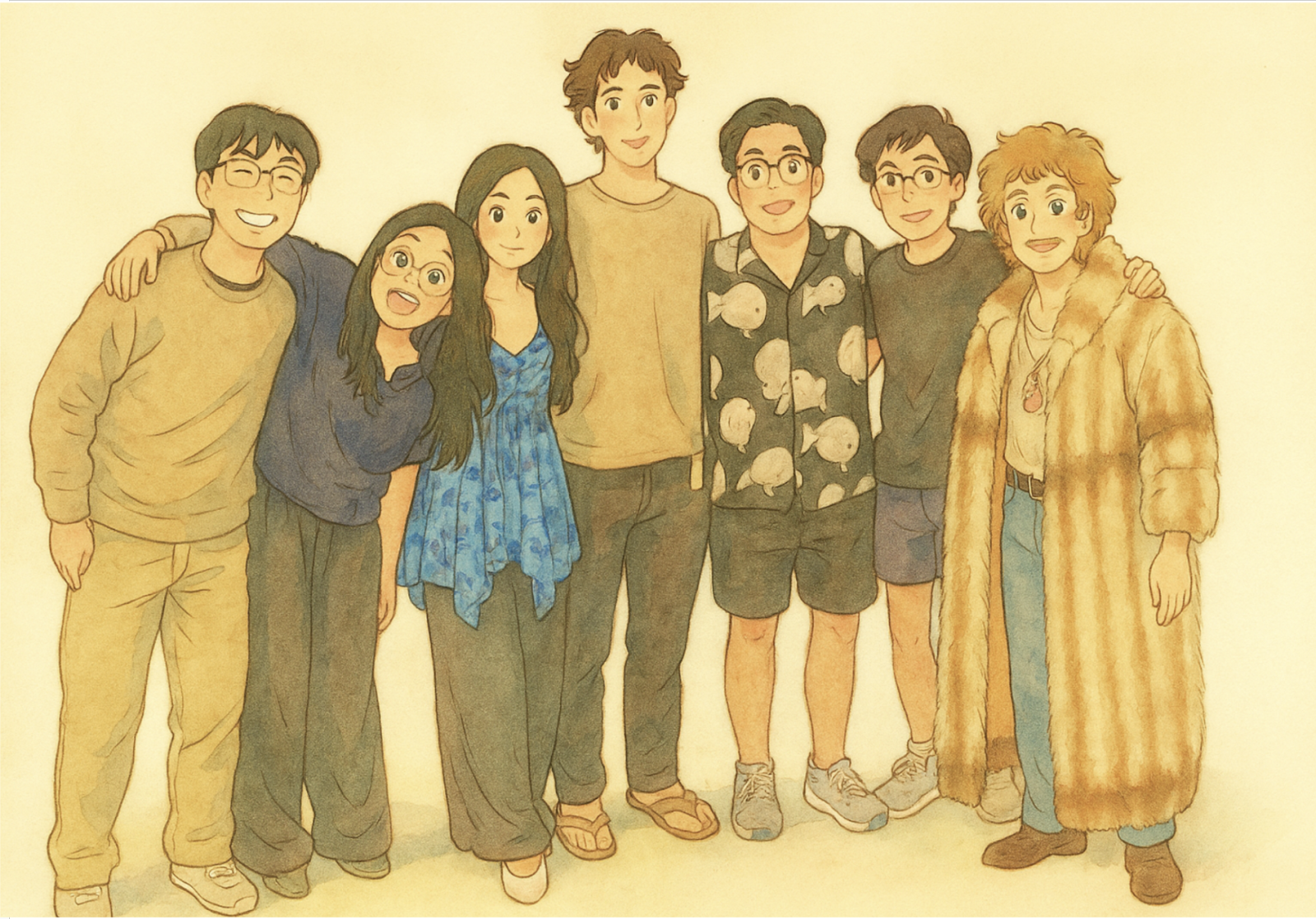On the (decidedly pleasant) comforts of this strange popup village
An Edge Esmeralda retrospective.
July 11, 2025
This is a guest post by Jason Hausenloy, shared here with permission. The views are Jason's own and do not necessarily reflect the views of Edge City. Read more Edge City Fellowship reflections from Anh, Yogya, Ivy, and Janet.
Introduction
Jason is an independent AI policy researcher, currently seeking to understand the politics of AGI. He is working on an essay examining how Republicans should approach AI, including legally compliant agents and theological implications of "building Machine God." Jason is interested in automation impacts, foreign policy coordination, and analyzing how the Trump administration might handle AI development.
Central learning question: how can we develop a right-of-center framework for addressing superintelligence that resonates with conservative values while acknowledging technical realities of AI safety?
---
So. It's a little bit hard to describe what, exactly, edge (as we came to refer to the "Edge Esmeralda experience" by) is to me.
When I'd call my friends and family while I was there, I would say "a libertarian hippie town in North Californian wine country, 2 hours out from San Francisco", and turn the camera around to show them the Healdsburg square in the middle of a sun-filled summer day. My description wasn't — as I would learn from speaking with Alex's (a fellow Edge fellow) mother, who came to visit — hippie in the traditional sense.
Perhaps it espoused the same sense of freedom and unboundedness and closeness and enchantment with the bare feet that defines the hippie communes of the more traditional sort. Though it did only have 1 or 2 really standout hippies.
But, I'd say — what's that wonderful line from Thor — “Asgard is not a place. It never was. It’s where its people stand.” And indeed Edge, was, more than a place, its people.
The Edge City Fellowship
I came to Edge on a whim. It was the final day I could apply for this fellowship. A good friend, Yudhister, had done it the year before — so I knew, at the back of my mind, the essential concept. As I was filling in that application, I decided I'd know the essential purpose of my attendance. It was simple: to be a writing retreat.
For the past few months, I'd been toying around with some ideas around the "politics of artificial general intelligence." I'd written a piece on the current political moment, and the sociology of the different tribes seeking influence on the right, and another on my expectations for AI automation. There were a number of ideas swirling around in my head that I wanted to write down. I'd started a new blog, The First Scattering, where I spoke about the current time. I feel like my introduction for it, perhaps, seems apt.
I'll paste in the (still work in progress) description here:
There's a moment in the history of the universe — about 380,000 years after the Big Bang — where everything became visible. Before that, the universe was an opaque, dense soup of colliding and scattering light in every direction. But, at that point, things cooled just enough. Atoms formed. Photons escaped. And, for the first time, light could travel freely.
That light — the Surface of Last Scattering — is the farthest back we can see.1 The earliest readable memory of the universe. A constant, background glow.
And, since learning about it, I've loved the idea. That everything before it mattered, but we'll never quite see it clearly.
If AGI arrives — aligned or not — it will fix the terms of the future. A misaligned superintelligence could tilt the future of value permanently. A well-aligned one might seed great human interstellar flourishing. All the decisions we make today will have mattered in shaping the future of the Universe. Either way, for the future historians, if there are future historians, the fog will lift.
But it’s hard to see clearly. There’s too much noise. Too many opinions, predictions, alarms. Too many half-finished thoughts.
For now, this blog lives in that messy in-between. A place to put scattered pieces: thoughts about AI, sometimes serious, sometimes not; philosophy I’m still chewing on; conversations I want to remember.
To scat in jazz is to let go of fixed language — to improvise until rhythm finds its own meaning. That’s the kind of thinking I like. Not linear. Not polished. But maybe, sometimes, honest.
And indeed, it did, in a similar way, in the best way, feel like my time at Edge was scattered.
Yes, I did try (and fail) to write 50,000 words. I was able to get a half passable first draft of my final essay done, but you'll have to wait for the full one. I went to a conservative seminar on the political economy of the current administration, and met VCs who have the cutest of children.

New Friendships
Oh the temptations of the sessions and sports and, above everything else, my fellow fellows, and now good friends.
We hung out so much at Edge (scrounging for cheap food in a decidedly not cheap town, holding each other accountable, to various degrees, for maintaining a regular sleep schedule, making great personal sites, cooking the mistimed dinner and grocery shopping and burning focaccia and oversalting pasta and trying to avoid getting food poisoned, goofing around in our rooms at Hotel Trio, feeling deep regret over my lack of red-blue-light-blocking-glasses-to-be-worn-every-night-at-9pm-thanks-nick and celebrating two birthdays and meeting each other's families and and and).
I've got no doubt we will continue to be. For half of them, I live less than a 20 minute drive away from (and have no shame going to knock on their doors), and for the other half (oh the Canadians), just a pleading look and a surely not that expensive flight ticket away — except for maybe Ivy. He's in Tokyo. I'm jealous. We'll get him back soon enough.
We'll all be back, soon enough.
---
This is a guest post by Jason Hausenloy, shared here with permission. The views are Jason's own and do not necessarily reflect the views of Edge City. Read more Edge City Fellowship reflections from Anh, Yogya, Ivy, and Janet.

